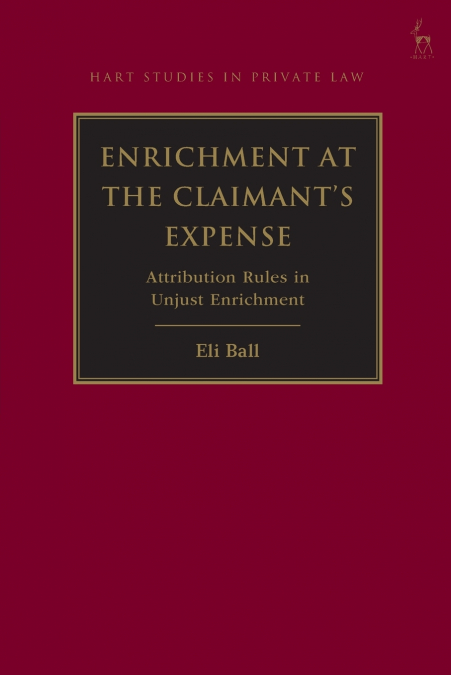
 Librería Perelló (Valencia)
Librería Perelló (Valencia)
 Librería Aciertas (Toledo)
Librería Aciertas (Toledo)
 El AlmaZen del Alquimista (Sevilla)
El AlmaZen del Alquimista (Sevilla)
 Librería Elías (Asturias)
Librería Elías (Asturias)
 Librería Kolima (Madrid)
Librería Kolima (Madrid)
 Donde los libros
Donde los libros
 Librería Proteo (Málaga)
Librería Proteo (Málaga)
This book presents an account of attribution in unjust enrichment. Attribution refers to how and when two parties - a claimant and a defendant - are relevantly connected to each other for unjust enrichment purposes. It is reflected in the familiar expression that a defendant be ’enriched at the claimant’s expense’. This book presents a structured account of attribution, consisting of two requirements: first, the identification of an enrichment to the defendant and a loss to the claimant; and, secondly, the identification of a connection between that enrichment and that loss. These two requirements must be kept separate from other considerations often subsumed within the expression ’enrichment at the claimant’s expense’ which in truth have nothing to do with attribution, and which instead qualify unjust enrichment liability for reasons that should be analysed in their own terms. The structure of attribution so presented fits a normative account of unjust enrichment based upon each party’s exchange capacities. A defendant is enriched when he receives something that he has not paid for under prevailing market conditions, while a claimant suffers a loss when he loses the opportunity to charge for something under the same conditions. A counterfactual test - asking whether enrichment and loss arise ’but for’ each other - provides the best generalisation for testing whether enrichment and loss are connected, thereby satisfying the requirements of attribution in unjust enrichment.